‘Everyone’s fleeing’: Brazil cracks down on illegal mining in Amazon – for now
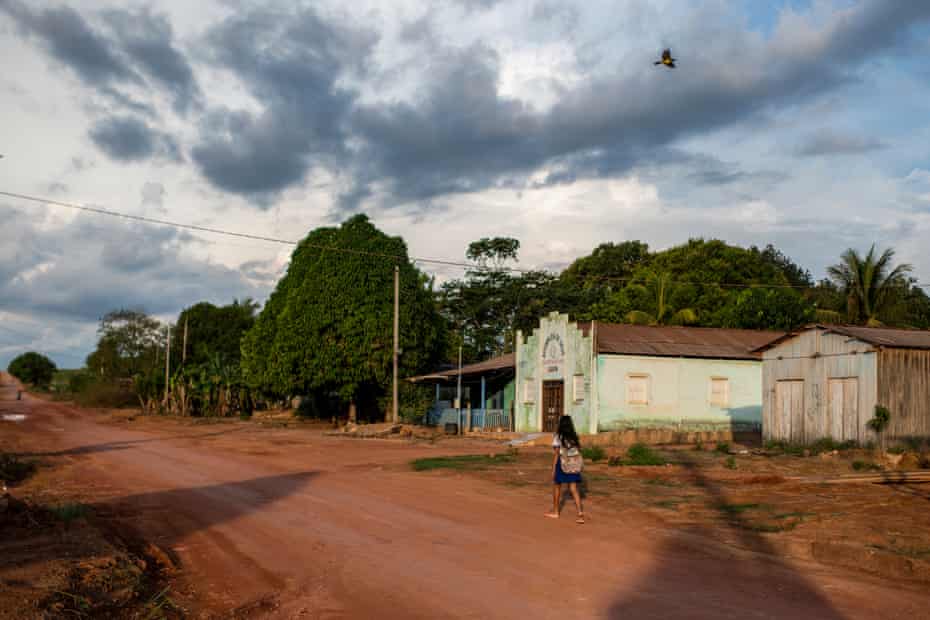
Government is determined to show the world a new, greener face, but activists are skeptical the clampdown will have lasting impact
In the four decades since he helped found the Garden of Gold, Fernando Viana has had a front-row seat to the chaotic scramble for precious metals in the Brazilian Amazon.
Cutthroat squabbles over the jungle mines sprinkled around this riverside outpost. Lead-riddled corpses dumped outside the rowdy wooden bordellos he once ran.
“Stabbings. Bullets. Shooting everywhere. So much shooting. It was wonderful, mate. A blast!” chuckled the puckish former police chief, who for years laid down the law in this corner of Brazil’s wild west with his .38 revolver.
In recent months, however, an unusual calm has descended on Jardim do Ouro after troops rolled into town, as part of a crackdown designed to convince the world that Jair Bolsonaro’s Brazil is cleaning up its environmental act.
“Everyone’s fleeing the forest … because the mines have been shut down,” said the Garden of Gold’s former sheriff, now 75, as he surveyed his strangely subdued community through cataract-clouded eyes.
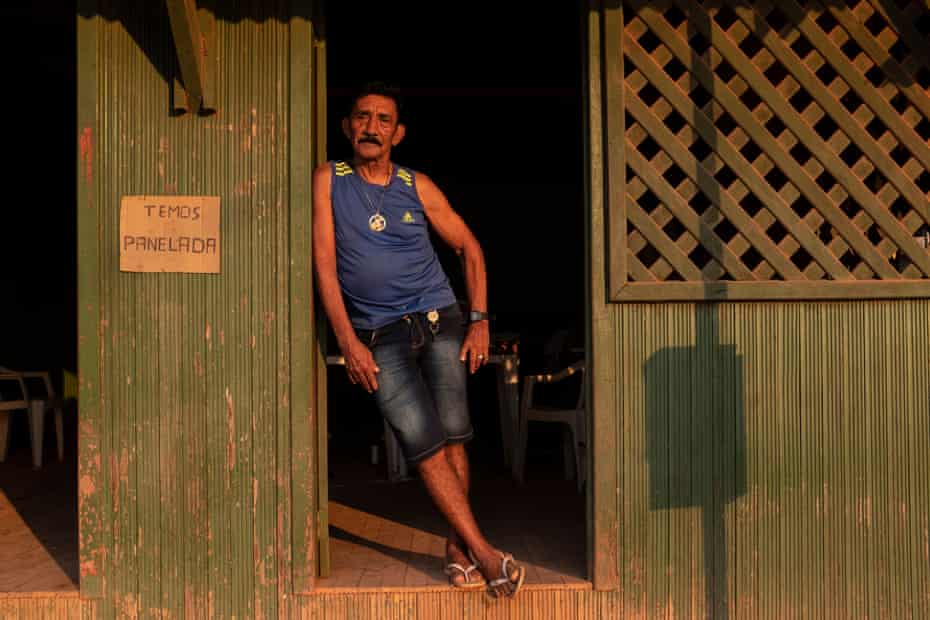
Amid rising global alarm at the climate emergency and the Amazon’s decimation under Brazil’s ultra-conservative president, the army has sprung into action with a two-month offensive against illegal goldminers and loggers. The mission, which began in July and ends this week, has been accompanied by a public relations blitz in which Bolsonaro’s administration claims: “It’s in our nature to preserve.”
Tarcisio Gomes de Freitas, a key Bolsonaro ally and cabinet member, said their government was determined to show the world a new, greener face after three years in which deforestation rates and global outrage exploded.
“I recognise there has been a deterioration of [Brazil’s] image as a result of the deforestation figures and what the government is now doing is increasing its monitoring capabilities so these statistics can be reversed,” the infrastructure minister said during a recent visit to the region. “The fight against deforestation will be intensified,” Freitas insisted, trumpeting the recent doubling of the environmental enforcement budget.
Activists are skeptical the clampdown, which comes on the eve of November’s Cop26 climate summit in Glasgow, will have any meaningful long-term impact while Bolsonaro remains in power. Deforestation has soared to a 12-year high under a leader who critics claim has emboldened Amazon outlaws with his anti-environmental words and deeds.
“This softening of the rhetoric doesn’t convince me … [and] I really don’t think the world will buy this so easily,” said Suely Araujo, the former head of Brazil’s environmental agency Ibama.
Araujo, now a public policy specialist for the environmental group Observatorio do Clima, said Brazil’s government had clearly grasped Cop26’s importance “and decided to see if this [green makeover] will stick”. Bolsonaro’s controversial environment minister, Ricardo Salles, was recently forced from government in what some saw as a bid to placate the international community after he was linked to an illegal logging racket.
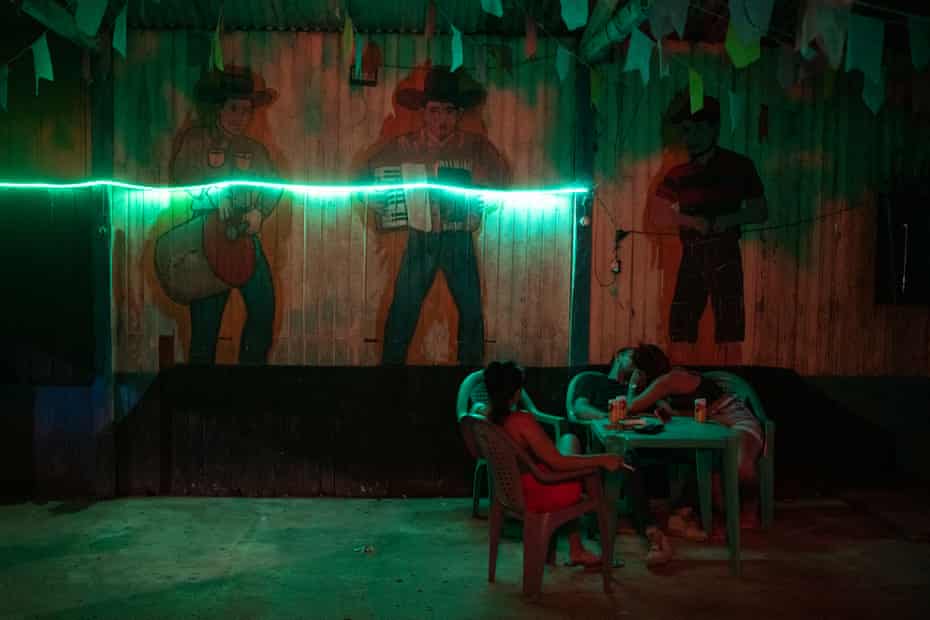
“But the boss is still there. It’s the president who’s in charge and he has a crude, 50-years out-of-date vision of environmental policy as if development meant knocking down the forest and replacing it with goldmines,” Araujo said.
Whatever the abiding impact of Brazil’s pre-Cop26 crackdown, it has had a real and immediate effect in Jardim do Ouro, where many illegal miners have been left jobless after their bosses halted operations for fear of their equipment being destroyed.
“I’m in a situation of decadence,” complained Tulio Pinheiro, an unemployed and inebriated miner, as he stumbled down the settlement’s dusty main drag one recent lunchtime having spent the previous night snoozing on a pool table because he lacked the funds for a room in a local flophouse.
As a green army truck clattered into town carrying sweaty, rifle-toting troops, Pinheiro approached the commander to complain. “Everything’s stopped. When’s the operation going to end?” the miner inquired. The officer laughed evasively.
Pinheiro, 33, said he knew exactly who to blame for his plight: not Bolsonaro, but the US president “Joe Bye”, who last year warned of “significant economic consequences” if Brazil continued to wreck the Amazon.
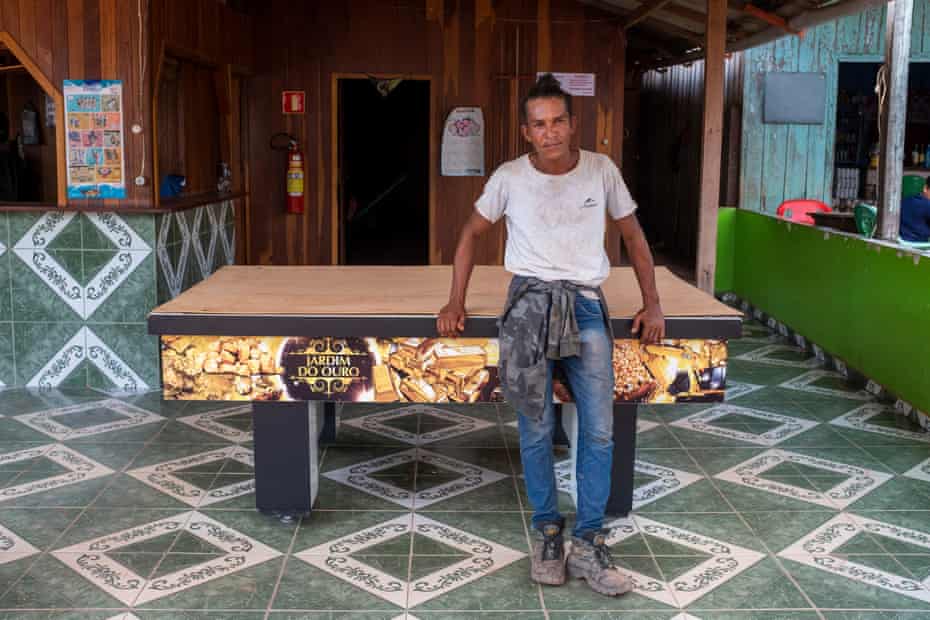
“He’s an environmentalist, he is,” the miner carped, claiming Brazil’s president had been strong-armed into taking action by his US counterpart. “Bolsonaro doesn’t support this … If it was up to him, none of this would be happening,” Pinheiro argued.
Custodio da Silva, who runs a shop near the river ferry that takes miners into the forest and brings gold and timber out, shared that view, despite being a leftist supporter of the Brazilian Workers’ party (PT). “Heck, Trump was much better! This crazy operation happened after Joe Biden came along,” said Silva, whose sales plummeted when pauperized miners skipped town.
In Moraes Almeida, a nearby town, one influential rancher and businessman also claimed Bolsonaro was being coerced. “He’s got no choice. He’s got a knife to his throat,” Ubiratan Filadelpho said of the international pressure. “It’s the whole world against Bolsonaro when it comes to this environmental question.”
Signs of the devastation wrought by decades of rampant exploitation are everywhere in Jardim do Ouro and the surrounding state of Para, one of nine that form Brazil’s Amazon.
The Jamanxim River, which meanders past Viana’s waterside bungalow, runs a disturbing milky brown: the result, locals say, of mining pollution. When Viana arrived in 1981, the region’s rainforests were largely untouched. Forty years later, like much of the Amazon, they have been replaced by a sprawling patchwork of dirt tracks and cattle ranches – and the destruction continues.
Twenty miles upriver, in a supposedly protected area near the Jamanxim national forest, the hum of a chainsaw could be heard despite the army’s presence. The machine fell silent as the Guardian’s reporters approached, but huge damage had already been done. Satellite imagery showed a 541-hectare strip of jungle was felled here in recent months – the equivalent of some 650 football pitches. At least 4,147 sq km of forest were destroyed in Para state between August 2020 and this July – an area more than 2.5 times larger than Greater London.
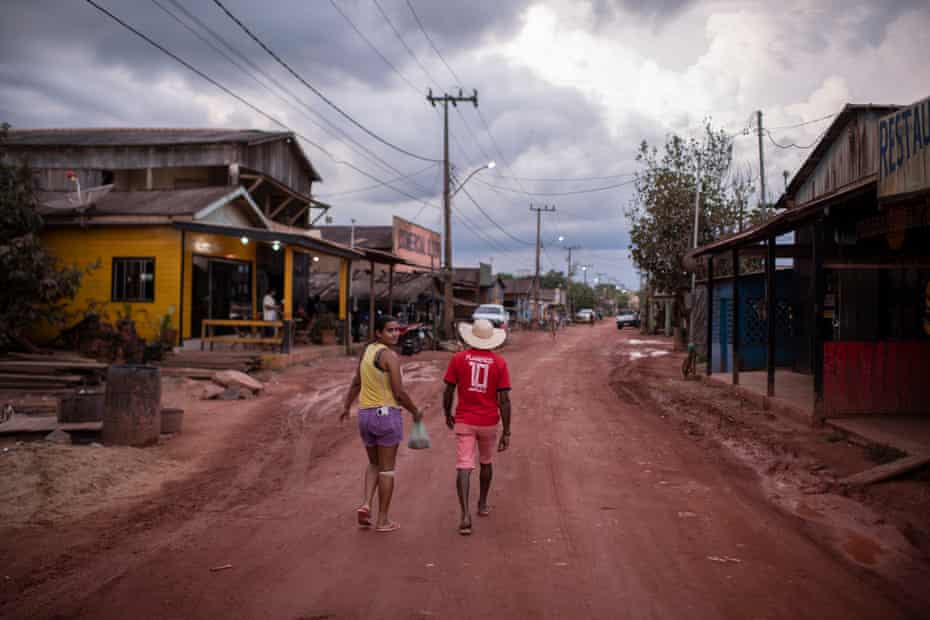
Araujo, the former Ibama chief, said army operations might temporarily slow such destruction but would never solve the problem on their own, especially given Bolsonaro’s “program of destruction”.
“As soon as they leave, everything goes back to how it was,” she said.
A return to business as usual is exactly what many in the Garden of Gold would like. Claudionor Silva, a kindly north-easterner who looked a decade older than his 56 years, said he had taken a job in one of the region’s illegal gold pits in April, after Covid torpedoed his work as a street hawker. Five months later he had been laid off again.
“How am I going to support my family now?” the father of four wondered as he sat beside an idled excavator that until recently had been tearing chunks out of the Amazon soil.
Benedito Ademar Leitao, a local preacher, said he feared his already tiny flock would shrink further if the crackdown forced redundant locals to migrate. Deep down, however, the churchman sympathized.
“God didn’t create the universe for it to be destroyed like this,” said Leitao, 63, a former miner who swapped gold for God after a booze-fuelled bar brawl in which he was shot in the hip and nearly died.
“When he created Adam, where did he put him? In the Garden of Eden,” the honeymouthed pastor sermonized as another army truck raced towards town. “And what did he tell Adam? To take care of it.”
